Strategy Books
A selection of strategy books and books about strategy that we recommend, organised into ‘theory’, ‘practice’ and ‘free downloads’. It will eventually include all the books mentioned in ‘The Quick Guide to Effective Strategy.’
The list, which is still being developed, starts with books about the theory of strategy and strategy making and then considers books that describe real-life examples of good and bad strategy. Where possible, I have included links to the books so you can see them on Amazon if you wish to buy them (but please see the disclosure at the bottom of this page). The list concludes with a mix of books, articles, reviews and reports from both categories that are freely available on the internet. Many of these, such as those produced by Parliamentary committees, the Financial Services Authority (as was), the National Audit Office (NAO) and the Charity Commission provide a hugely valuable insight into why some strategies succeed and others fail. Where possible, I have included links so you can download them from trusted websites if you wish.
Strategy Books: The Theory
The Quick Guide to Effective Strategy
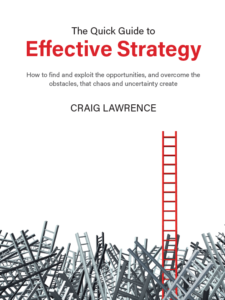
Perhaps it’s no surprise that we start this list with our own strategy book! It’s getting great reviews and provides a general introduction to strategy before explaining an accessible and proven methodology that anyone can apply to develop an effective strategy for their organisation, whether it’s a business, a charity, a school or a government department. It draws on almost all of the other books we recommend on this page and is now on the reading list of the RAF’s prestigious Tedder Leadership Academy. Moreover, it’s routinely in the top five bestsellers in Amazon’s ‘MBA Reference and Education’ category. Click this link or the image of the book to see it on Amazon.
Good Strategy/Bad Strategy
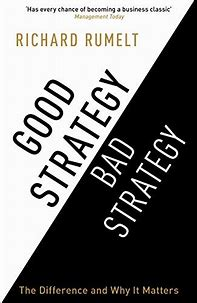
This is a great book and provides an easy-to-read, and therefore highly accessible, guide to developing good strategy. It gets lots of mentions in my own book (above) and is full of vignettes and case studies which the author uses to highlight both good and bad strategy. It’s also amusing; his description of what he calls ‘Sunday words’ – the cool sounding but meaningless words that people use in their strategies to impress – still makes me chuckle! I had the privilege of facilitating a Q&A with Rumelt a few years ago and strongly recommend this book to anyone interested in strategy, whether novice or long-term expert. We all have much to learn from his experience and wisdom. Click the image to the left or use this link to see the book on Amazon.
The Decision Book
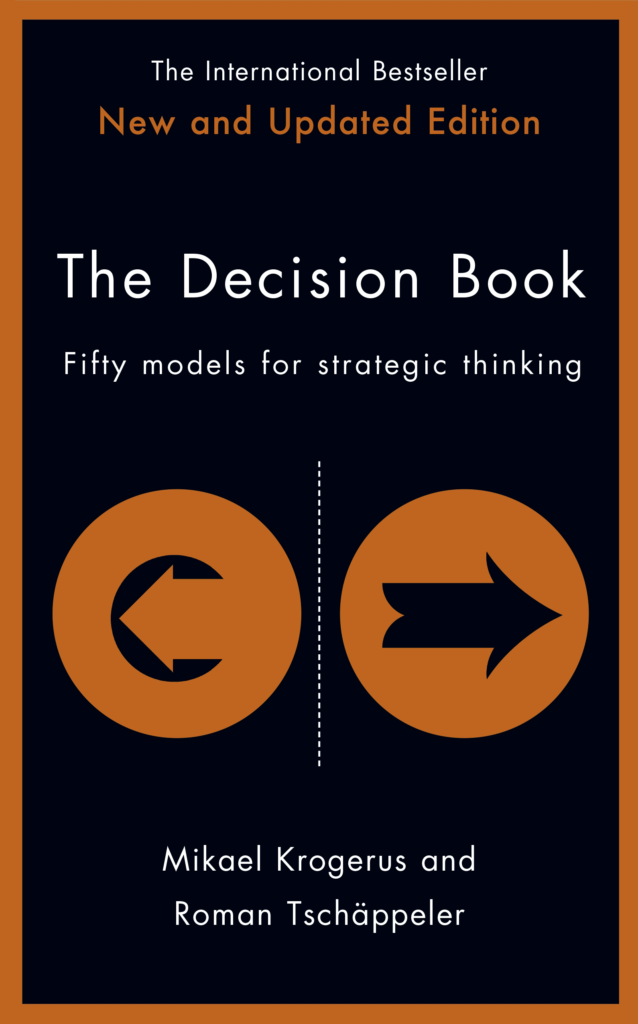
I love this little book! It looks at more than 50 different tools and techniques that you can apply to help you think strategically and make decisions. Its brilliance is that each tool or technique is described on one or two pages in accessible language and with straightforward diagrams that aid understanding. I particularly like it because it provides an authoritative and informed explanation of how to apply some of the tools people will have heard of before but probably never really understood. It’s also excellent for signposting to other authors. I drew on it in writing ‘The Quick Guide to Strategy’ because of its straightforward explanation of some very complex ideas. Click the image to the left or use this link to see the book on Amazon.
The Strategy Book
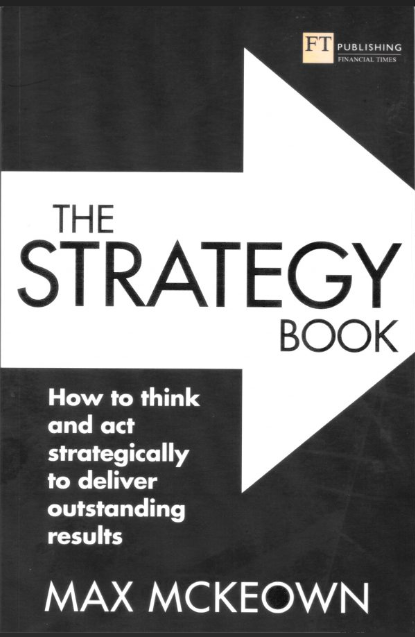
On the opening page of this accessible and interesting book, Max McKeown states that ‘strategy is about shaping the future. Smart strategy is the best way to desirable ends with available means.’ This is a really good definition because it recognises that the future is uncertain. You can’t predict exactly how it will unfold but you can try to understand it and to identify the opportunities and obstacles that it might create. It then explains how you might set about doing this, offering lots of sensible advice and using lots of real-world examples to illustrate the points being made. Although the book is primarily intended for a business audience, much of it is also relevant to those developing strategy in the public and third sectors. In particular, the ‘strategy book toolkit’ in Part 6, which covers similar ground to ‘The Decision Book’, describes lots of tools and techniques that would be of real value to any strategist. Click the image to the left or use this link to see the book on Amazon.
Strategy: How to create, pursue and deliver a winning strategy
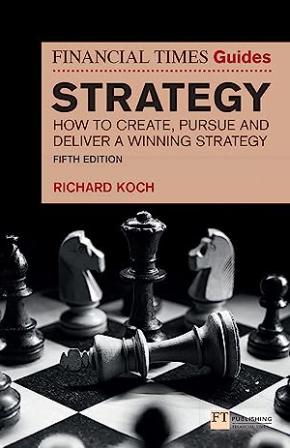
Published by the Financial Times and firmly aimed at the business sector, this useful book provides a great introduction to strategy for business units and corporations. The author, a self-made billionaire businessman and management consultant, is hugely knowledgeable and writes in an accessible style. Unlike many other strategy books, he includes a section (Part 3) in which he identifies ‘strategists who think and do – the best entrepreneurs who were also brilliant strategists.’ It’s a fascinating list and includes many people you will have heard of but also many you won’t have, though you will probably have heard of their ideas or used their products. Koch explains who they were and then why he thinks they were so brilliant – it makes compelling reading! The last section, which looks at tools and techniques, is particularly valuable because it also explains concepts (ranging from ‘adhocracy’ through to the ‘west coast venture capital paradigm’). Click the image to the left or use this link to see the book on Amazon.
The Science of Storytelling
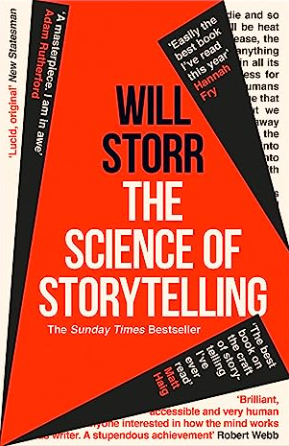
You might be surprised to see a book about storytelling in this list but for a strategy to be successful, it is usually necessary to change the behaviours of multiple stakeholders. To achieve this, effective strategies require a convincing strategic narrative, which can form the core of a communications plan. This interesting, accessible and well-researched book by the author and journalist Will Storr explores the art of storytelling and ‘how master storytellers manipulate and compel us.’ It is essential reading for anyone who needs to develop a strategic narrative that will give stakeholders a reason to care and a reason to act in support of their strategy. Click the image to the left or use this link to see the book on Amazon.
Strategy Books: In Practice
Winners and How They Succeed
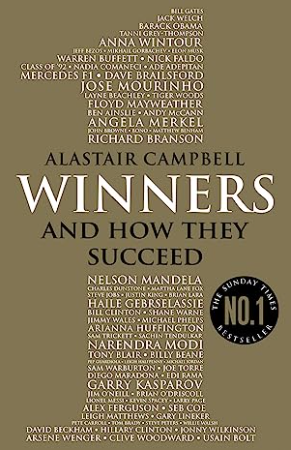
An interesting read about leadership and what makes leaders successful, it has an excellent ‘must read’ chapter on strategy in which Campbell explains the approach he took to developing the strategies that helped Tony Blair win his elections. In the chapter he introduces the acronym ‘OST’, which stands for ‘objective’, ‘strategy’ and ‘tactics’, the three things he believes you need to get things done. As you might expect given Campbell was Tony Blair’s Director of Communications and Strategy, it’s very well written and full of lots of fascinating anecdotes. I bought the book when I was at the Royal College of Defence Studies and had just facilitated an online Q&A with him during the covid pandemic. I also drew on it in writing ‘The Quick Guide to Effective Strategy’, contrasting his approach to strategy making with that of Richard Rumelt. Click the image or follow this link to see the book on Amazon.
Amazon
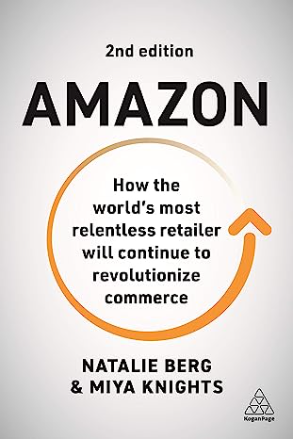
Well researched and written in an accessible style, this book provides a real insight into Amazon’s approach and explains why the company is so successful. As well as its online platform that we all know and some of us love, it looks at Amazon’s ventures into groceries and physical stores and considers what next? In sum, a fascinating and exquisitely researched study into Amazon’s leadership and its real-world application of strategy, which I drew on in writing ‘The Quick Guide to Effective Strategy’ as it has some excellent examples of how innovative ideas (such as Amazon Prime) can have a transformative effect. Click the image or follow this link to see the on, of course, Amazon!
Free Strategy Downloads
The Little Book on Big Strategy
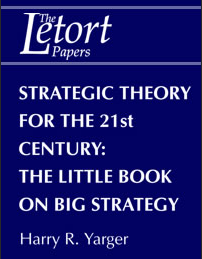
This excellent book by Harry (Rich) Yarger contains numerous key insights into strategy making. Published by the US Army War College, it’s a ‘must read’ for anyone involved in the tricky business of developing and implementing strategy. Not surprisingly, I drew on it in writing ‘Getting Strategy Right (Enough)’ and again in writing ‘The Quick Guide to Effective Strategy’! Yarger’s accessible style means it’s an extremely good source of strategy quotes and, to my mind at least, offers the best description of strategy as ‘a coherent blueprint to bridge the gap between the realities of today and a desired future’. You can download a free copy of ‘The Little Book on Big Strategy’ at this link or by clicking on the image.
Coronavirus: Lessons Learned to Date
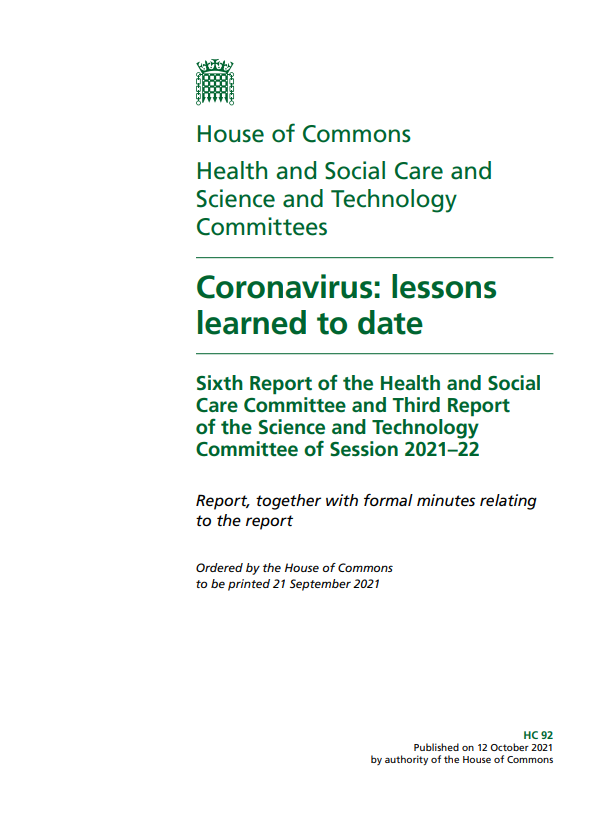
This joint report by two Parliamentary committees (the Health and Social Care Committee and the Science and Technology Committee) was published in October 2021. As it says in the executive summary, ‘in 2020 the UK did significantly worse in terms of covid deaths than many countries – especially compared to those in East Asia even though they were much closer geographically to where the virus first appeared. The scale of this early loss requires us to ask why the UK was affected worse than others.’ And that’s exactly what the report does, looking at the reasons why the UK fared so badly and then making recommendations. It pulls no punches and includes lots of fascinating witness statements. I drew on it in writing ‘The Quick Guide to Effect Strategy’ and use many of its findings and recommendations in the presentations I give on why strategies fail. You can download a free copy at this link or by clicking on the image.
Getting Strategy Right (Enough)
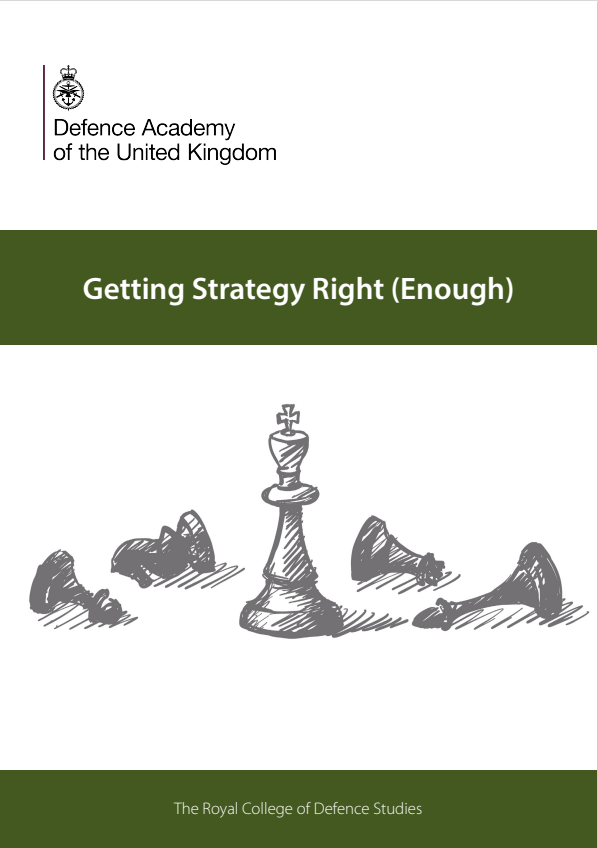
The Royal College of Defence Studies (RCDS) teaches post-graduate level courses in international relations, strategy making and strategic leadership. I was the Course Director there and wrote ‘Getting Strategy Right (Enough)’ to support the College’s flagship 11 month course in strategic leadership and the development and implementation of strategy. It incorporates many of the key lessons identified in Government reports, such as that published by Sir John Chilcot into the UK’s intervention in Iraq, and books, such as Hooker and Collins’ seminal examination of US interventions in Iraq and Afghanistan (both available below). It’s crammed full of great quotes about strategy from some very authoritative sources! You can download a free copy of the book at this link or by clicking the image.
The Report of the Iraq Inquiry (The ‘Chilcot Report’)
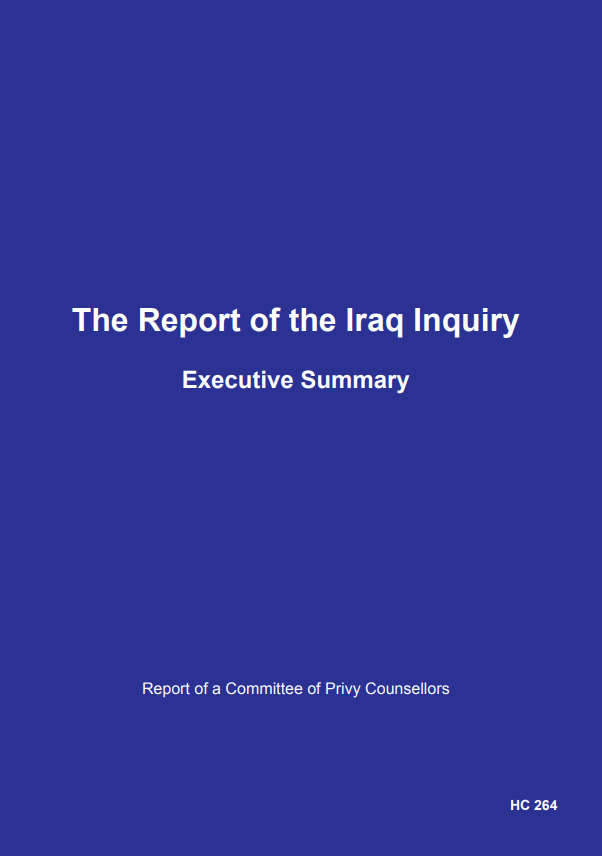
Although the final report runs to some 2.6 million words in 13 volumes, the executive summary – pictured left – is a much shorter read. It is so full of insights and recommendations about strategy making and strategic leadership that it is a ‘must read’ for anyone who is serious about strategy. Perhaps not surprisingly, I drew heavily on the ‘Chilcot Report’ in writing ‘Getting Strategy Right (Enough)’ and again in writing ‘The Quick Guide to Effective Strategy’. A very authoritative source of strategy wisdom and quotes – indeed, it’s a veritable goldmine! You can download a free copy of the ‘Chilcot Report’ at this link of by clicking on the image. As an aside, Sir John Chilcot saw an early draft of ‘Getting Strategy Right (Enough)’ and helped me by offering some suggestions that definitely improved it!
Lessons Encountered: Learning from the Long War
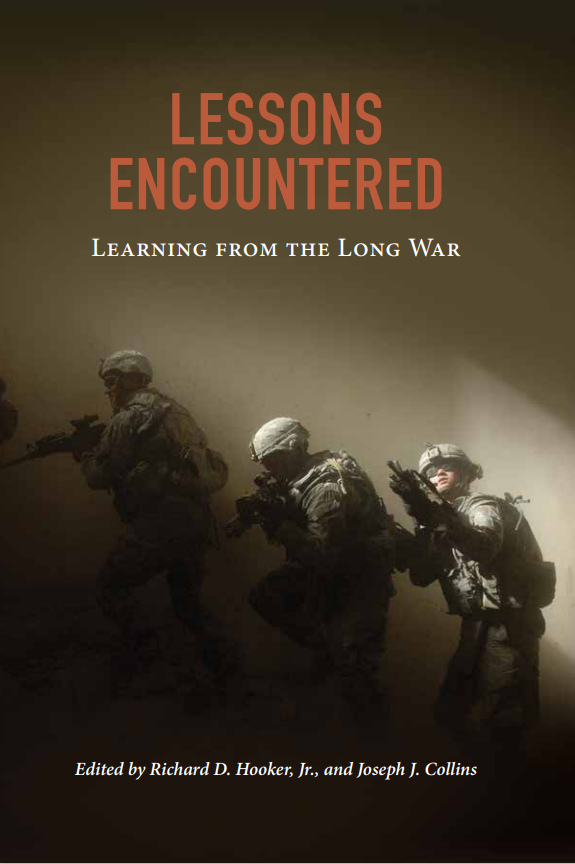
This seminal book by Richard D Hooker and Joseph J Collins was commissioned by the US Chairman of the Joint Chiefs to try and identify the lessons from the US’ interventions in Iraq and Afghanistan. It is crammed full of insights into strategy making and strategic leadership. I was fortunate to meet Richard Hooker in the US and discuss his book with him. I then drew heavily on ‘Lessons Encountered’ in writing ‘Getting Strategy Right (Enough)’. Lots of quotes about strategy and strategy making, but this time from a US perspective! You can download a free copy of ‘Lessons Encountered’ at this link or by clicking the image.
The Failure of the Royal Bank of Scotland

In October 2008, the UK Government began to inject £45.5billion into the Royal Bank of Scotland (RBS) to prevent its collapse, imposing large costs on UK citizens. As a result, the Financial Services Authority (FSA) carried out an exhaustive inquiry into why the bank failed and whether there were any lessons that could be learnt. This excellent report summarises the inquiry’s findings. It concludes that RBS’ failure was due to ‘poor management decisions, deficient regulation and a flawed supervisory approach.’ Although a long document (450 pages), it’s a fascinating read, not least because it pulls no punches. I recommend you scan the executive summary (15 pages), dipping into the main body of the report as and when further detail is required. You can download a free copy of the report at this link or by clicking the image.
The Collapse of Carillion
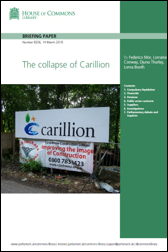
On January 2018, Carillion, the giant multinational and facilities management company, went into liquidation. This briefing paper by the House of Commons Library, which was published in March 2018, explains the background and provides an accessible summary of the immediate consequences of the company’s failure. It also gives a useful summary of the different investigations being conducted by different Government bodies at the time the briefing paper was written. You can download a free copy of the briefing paper at this link or by clicking the image. Note also the Parliamentary report into the company’s collapse below.
Carillion
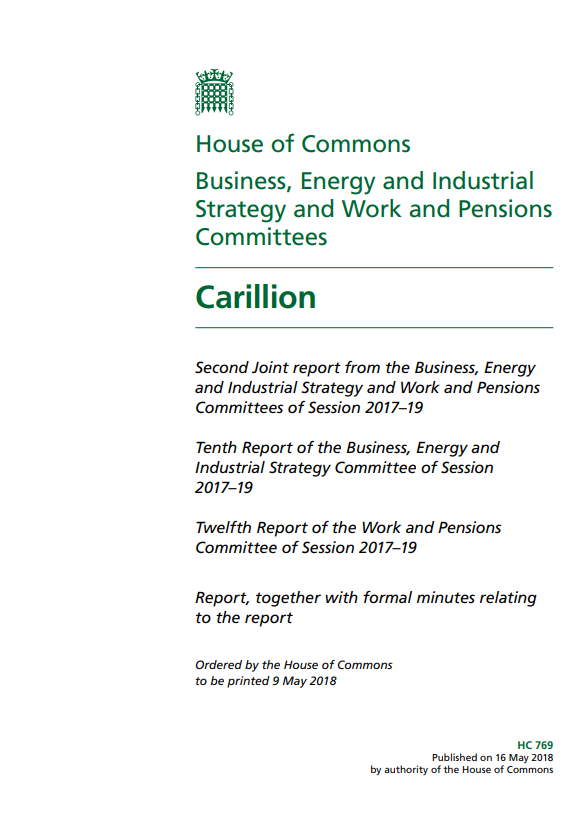
This report by two Parliamentary committees (the Business, Energy and Industrial Strategy Committee and the Work and Pensions Committee) makes absolutely fascinating reading. The inquiry was undertaken to enable ‘the reasons for the collapse of Carillion, and its lessons for the Government, to be considered in public.’ Again, like many such reports, it pulls no punches in concluding that ‘Carillion’s rise and spectacular fall was a story of recklessness, hubris and greed…Even as the company very publicly began to unravel, the board was concerned with increasing and protecting generous executive bonuses.’ You can download a free copy of the report at this link or by clicking the image.
Who does UK National Strategy?
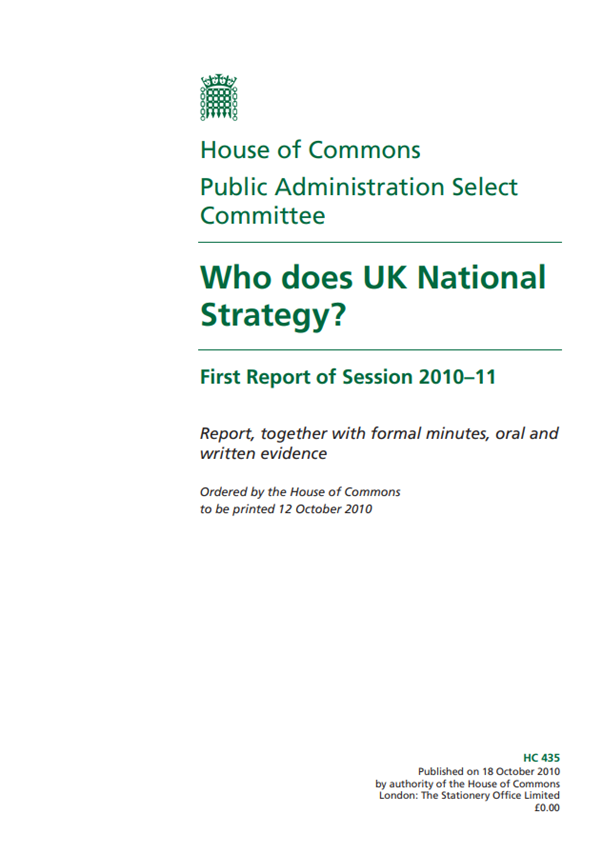
In May 2010, the UK’s new coalition Government undertook to take a more strategic approach to extending the country’s ‘global reach and influence.’ In was in this context that the Public Select Committee decided to hold an inquiry into ‘who does UK Grand Strategy?’ in order to ‘provide a fresh appraisal of the qualities of strategic thinking in government and any recommendations for improvements.’ The inquiry was supported by some of the most prominent strategy experts in the world and this report of the inquiry’s findings therefore makes fascinating reading, both on the nature of strategy generally and on the UK’s ability to think strategically and to develop effective strategy. The inquiry conducted by the committee led to the ‘profoundly disturbing conclusion that an understanding of National Strategy and an appreciation of why it is important has indeed largely been lost. As a consequence, strategic thinking has atrophied. We have failed to maintain the education of strategic thinkers, both in academia and in government institutions.’ The report concludes that ‘the answer we received to the question, “Who does UK Grand Strategy?” is: no-one. This should be a matter of great concern for the Government, Parliament and the country as a whole.’ The report made more than 20 pragmatic recommendations that it hoped would improve strategic thinking in government. Nearly 15 years later, it is rather sad to note that very few of the report’s recommendations were ever implemented. You can download a free copy of the report from the UK Parliamentary Publications website at this link or by clicking the image.
Dilemmas in a General Theory of Planning
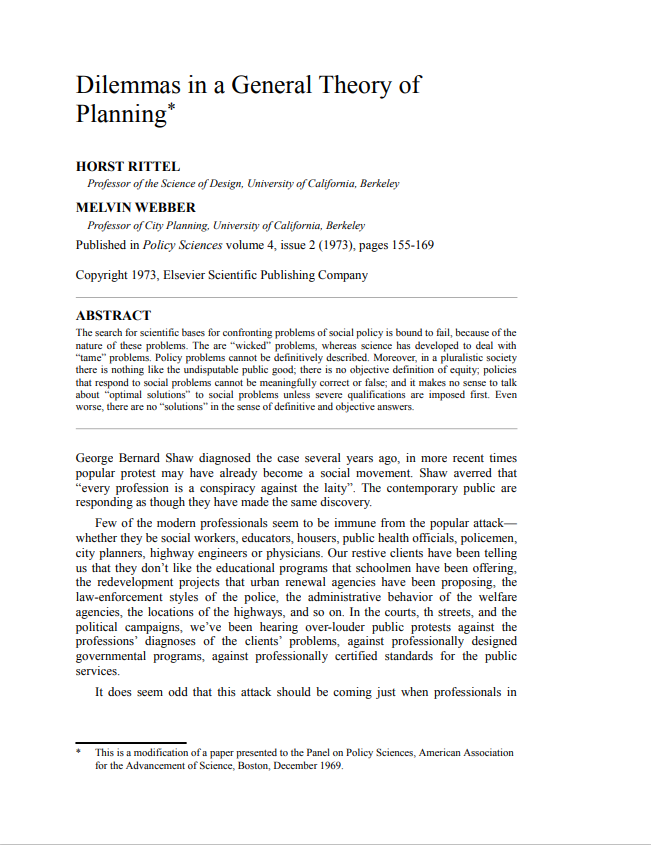
This seminal article by Horst W J Rittel (Professor of the Science of Design at the University of California, Berkeley) and Melvin M Webber (Professor of City Planning) was published in the journal Policy Sciences in June 1973. Although short (it runs to 15 pages) it changed the way people think about problems, differentiating between ‘tame’ or ‘benign’ problems and that what they called ‘wicked problems’. Their proposition was that the former have ‘findable’ solutions but the latter, which include many public policy issues such as confronting crime, do not have a definitive single solution. You can download a free copy of the report from UrbanPolicy.net at this link or by clicking the image.
Disclosure: we only endorse books, articles, reports and reviews that we personally recommend. If you purchase anything we recommend using one of our links to an Amazon product then please note that as an Amazon Associate, Craig Lawrence may earn a small commission from qualifying purchases, though there is no extra cost to you. The words that Amazon requires us to state on this page are: “as an Amazon Associate I earn from qualifying purchases.” You can find out more about Amazon’s Affiliate Program at this link.
